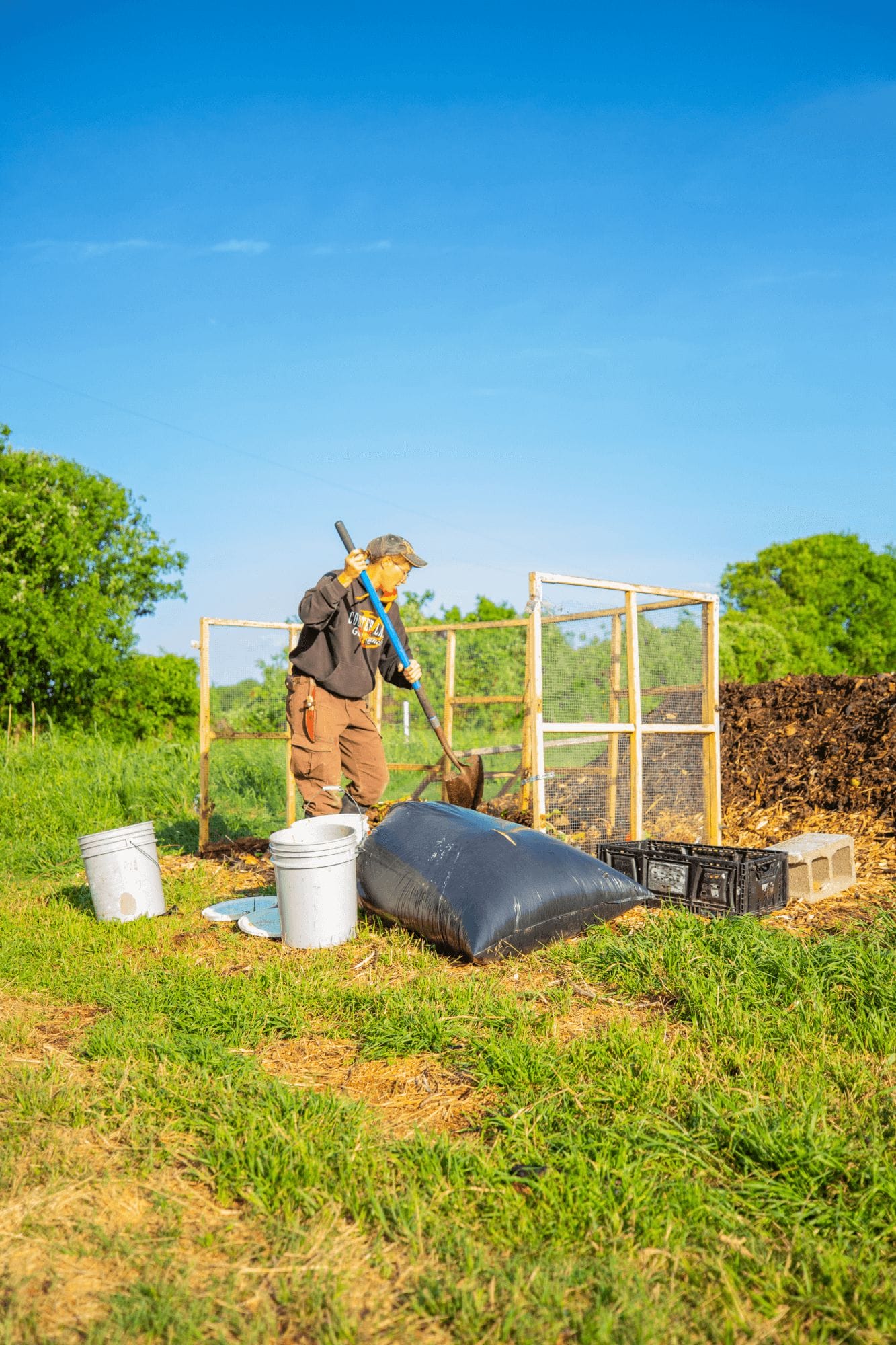Composting
Composting is an essential part of growing produce at Spring Lake Farm. It enhances soil quality, reduces landfill waste, reduces greenhouse gas emissions, and promotes equitable access to healthy food. Through our composting initiatives at WHR, we strive to cultivate a culture of sustainability as we work toward closing the food waste loop in our local and global food systems. We see composting as an integral solution to both alleviating hunger and promoting responsible care for our shared planet and its inhabitants.

The nutrient-rich material resulting from the controlled decay of organic material, compost, contributes beneficial nutrients to soil, improves soil structure and helps soak up runoff that can pollute rivers and lakes. As the organic material mixes together and decomposes, heat is produced in the compost pile. At those temperatures, organic material quickly breaks down into nutrient-rich humus and pathogens are killed. When it becomes a uniform, dark, earthy substance, it’s ready to be used. Compost can be added to the soil before planting seeds and transplants, or it can be applied as a top dressing.
Between fall 2023 and spring 2024, we diverted over 30,000 lbs of food waste from landfills to support local sustainable produce production (that’s heavier than a male Columbian Mammoth!). These food scraps, coffee grounds, and spent grains have been diverted from our local landfill and are now recycling nutrients back into our local food system.

Community Compost Drop-Off
We currently provide a free community compost drop-off program, allowing residents of North Waco and surrounding areas to conveniently dispose of their organic waste. Located in front of our Education building, you’ll find two 32-gallon bins, with the green one designated for food waste and the gray one for yard waste. Please follow the signage above the bins and deposit only approved compostable items.
Every week, your waste goes into one of our many composting systems on the farm and turns into nutrient-rich compost for our educational gardens and Urban Homestead. This makes you a vital part of the solution!

Community Compost Drop-Off
We currently provide a free community compost drop-off program, allowing residents of North Waco and surrounding areas to conveniently dispose of their organic waste. Located in front of our Education building, you’ll find two 32-gallon bins, with the green one designated for food waste and the gray one for yard waste. Please follow the signage above the bins and deposit only approved compostable items.
Every week, your waste goes into one of our many composting systems on the farm and turns into nutrient-rich compost for our educational gardens and Urban Homestead. This makes you a vital part of the solution!

Commercial Compost Program
We collaborate with an array of local partners! These community-minded businesses actively participate in our effort to intercept food waste and utilize it to enrich the soil to help produce nutritious food for our community.
If you are a local business owner or know one who may be interested, please contact us to explore the opportunity to join our weekly/bi-weekly pickup route in downtown Waco. For more information about our composting programs or general information about composting, please email our team at composting@worldhungerrelief.org.

Commercial Compost Program
We collaborate with an array of local partners! These community-minded businesses actively participate in our effort to intercept food waste and utilize it to enrich the soil to help produce nutritious food for our community.
If you are a local business owner or know one who may be interested, please contact us to explore the opportunity to join our weekly/bi-weekly pickup route in downtown Waco. For more information about our composting programs or general information about composting, please email our team at composting@worldhungerrelief.org.
Thank you to our community composting partners!
- Cha Community
- For Keeps Coffee & Bakery
- Harvest on 25th
- Native Sons Coffee Roasters
- Maker’s Edge
- Mamaka Bowls
And many other community members!